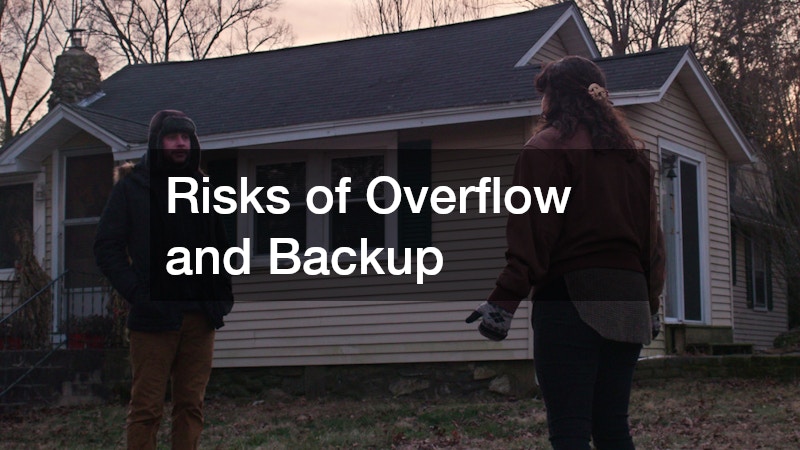Maintaining a septic system through regular pumping is crucial for homeowners who want to avoid costly repairs and ensure health and safety. A septic system that functions properly prevents hazardous waste from overflowing into yards or contaminating water supplies, thereby protecting both the property and the environment. By engaging in routine maintenance, homeowners can prolong the life of their septic systems while minimizing potential health hazards.
The Basics of Septic Systems
A septic system consists of two main components: a septic tank and a leach field. Wastewater from the home flows into the septic tank, where solids are separated from liquids.
The partially treated liquid then drains into the leach field for further natural filtration into the ground.
In a properly functioning system, bacteria in the tank break down organic waste, reducing its volume significantly. Regular pumping is essential to remove the sludge and scum that accumulate and are not decomposable by bacteria. This prevents solids from overflowing into the leach field, which can cause clogs and system failure.
Septic systems rely on natural processes and are more sustainable for remote locations without access to municipal sewage systems. However, for optimal performance, these systems require consistent care and monitoring. Understanding the components and function of your septic system is the first step toward effective maintenance.
The Process of Waste Breakdown
In the septic tank, anaerobic bacteria begin breaking down solid waste as soon as it enters. This natural process is vital for transforming solid waste into a more manageable form that occupies less space. However, it is important to note that not all waste can be decomposed, and this is why regular pumping is needed.
Through a series of complex biological reactions, proteins, fats, and other organic materials are reduced to simpler compounds. This breakdown process happens slowly, and if waste accumulates too quickly, it may disrupt this natural cycle. The byproducts of this process are gases like methane and carbon dioxide, which escape through the system’s vent.
The remaining liquid, known as effluent, flows to the leach field where it percolates through soil layers, getting further filtered and purified. Successful waste breakdown ensures that harmful bacteria don’t reach the groundwater or ecosystem. Effective breakdown is key to preventing unpleasant odors and bacteria spread in residential areas.
Risks of Overflow and Backup
If a septic tank isn’t pumped regularly, it can overflow, leading to waste backups within the home. Such unsanitary conditions can cause health hazards, unpleasant smells, and property damage. The financial burden of repairing damage caused by backups is often much higher than the cost of routine maintenance.
Septic backups can flood basements or lower levels of a home, carrying harmful bacteria and pathogens. This can necessitate immediate professional cleaning and disrupt daily life. Moreover, chronic backups can reduce the lifespan of your septic system, resulting in a costly premature replacement.
A full septic tank can also cause toilets and drains to function inefficiently, leading to increased water usage and utility bills. Regular septic pumping service helps maintain water flow and system efficiency. Prevention through routine maintenance is always more cost-effective than managing the aftermath of overflow incidents.
Cost of Neglect
Ignoring routine septic pumping service and maintenance can lead to significant and unexpected expenses. Major repairs or replacements of septic systems can cost thousands of dollars, far exceeding the nominal expense of regular pumping. Consequently, homeowners are incentivized to keep their systems maintained to avoid these financial pitfalls.
Beyond repair costs, the damage caused by neglect can affect a home’s resale value, making it less attractive to potential buyers. Severe damage may require excavation and replacement of the leach field or tank, both costly undertakings. Protecting the value of your property is another compelling reason to adhere to a regular maintenance schedule.
Some insurance policies may not cover damage resulting from negligence, leaving homeowners to bear the full financial burden. Avoiding these expenses requires proactive maintenance and consultative services from reliable septic maintenance providers. Financial prudence in septic care saves money and preserves property assets.
Long-Term Benefits of Regular Pumping
Routinely maintaining your septic system through scheduled pumping offers many long-term benefits. An efficiently operating septic system is less likely to experience blockages and failures. This proactive approach reduces the risk of unexpected repairs, thereby saving on future costs.
Regular maintenance can improve a home’s resale value, reassuring buyers that the property is well-cared-for. A record of consistent service serves as evidence of responsible homeownership to prospective buyers. Moreover, proper care can extend the life of the septic system, delaying the need for costly replacements.
On an environmental level, a well-maintained septic system helps protect local ecosystems from contamination. By minimizing the risk of leaks and overflows, homeowners contribute to cleaner soil and water. Maintaining your system is not just an investment in your property, it’s a commitment to community health and environmental sustainability.
In conclusion, regular septic pumping service and maintenance through consistent pumping is essential for every homeowner. Understanding how septic systems work and recognizing signs of failure plays a critical role in their upkeep. By committing to a proactive maintenance schedule, homeowners can avoid costly repairs, safeguard their property, and protect the environment.
.






